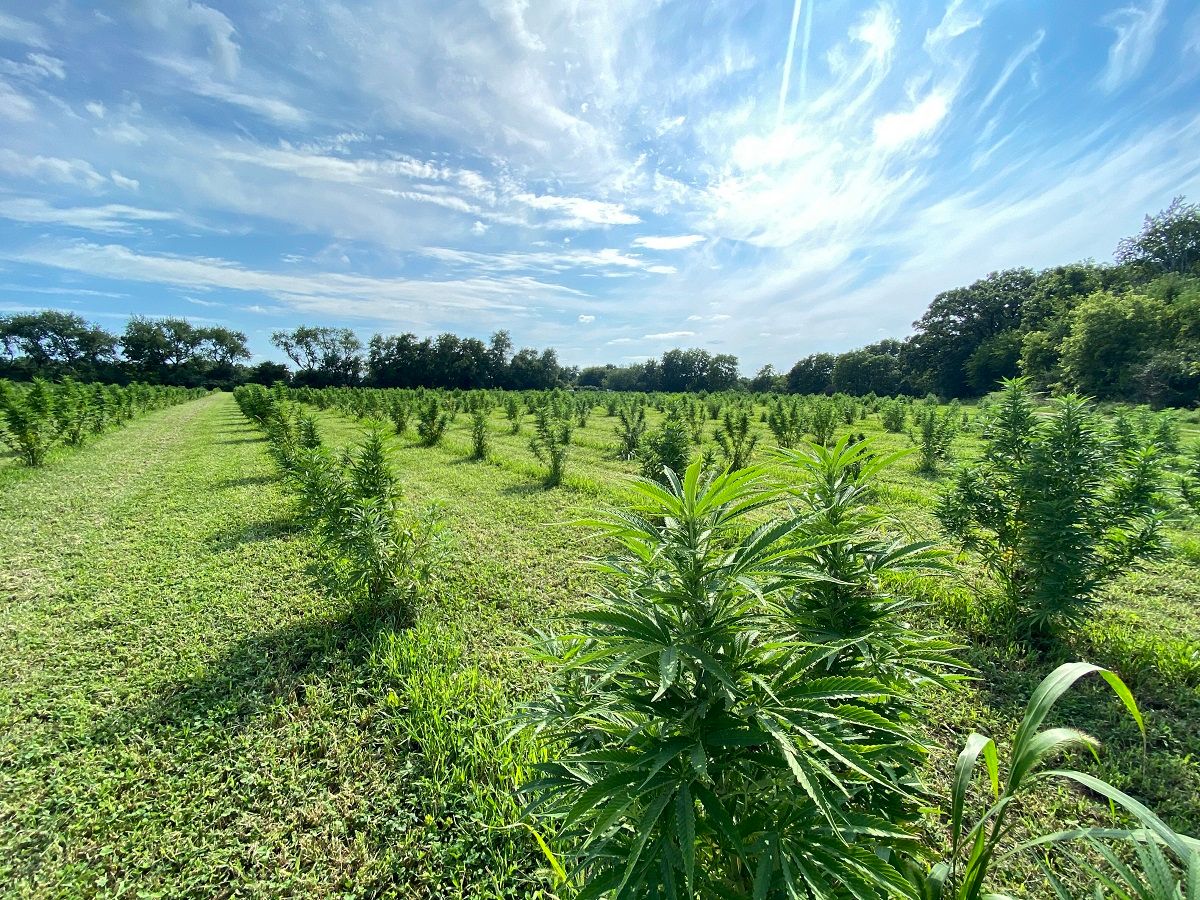This week, the United States Department of Agriculture (USDA) announced the first round of grant recipients for its Partnerships for Climate-Smart Commodities program, which will include exciting hemp development projects, among them a major step forward for Indigenous communities.
Canndigenous: First Indigenous-Owned Company Awarded USDA Climate-Smart Commodities Grant
Wisconsin-based hemp company Canndigenous, in partnership with Iconoclast Industries and several university and business partners, has been awarded a $15 million grant for its “Industrial Hemp for Fiber and Grain” project by the USDA to fund the research and development of hemp as a climate-smart commodity. Canndigenous is the only tribal-member owned entity to receive funding from this USDA program to date, making the award a significant milestone for Indigenous entrepreneurship.
"The USDA moves the needle in the right direction by investing in climate-smart consumable products and incentivizing businesses like Canndigenous to raise the bar,” said Canndigenous founder and member of the Bad River Band of the Lake Superior Tribe of Chippewa Indians Rob Pero, praising the USDA. “We are committed to bringing the industry forward and making ambitious contributions to decarbon our world.”
Led by Iconoclast Industries, the “Industrial Hemp for Fiber and Grain” project will use the $15 million grant to support the expansion of climate-smart markets by providing open-access data and training on how to monetize climate-smart practices through a digital marketplace pilot. The project will also establish an inclusive workforce to engage with and financially support underserved producers as they learn the climate-smart practices in Florida, New York, Tennessee, Virginia, and Wisconsin.
Canndigenous Opens Climate-Smart Pathways For Indigenous Communities And Cannabis Businesses
Canndigenous founder Pero also owns Wisconsin-based marketing and consulting firm Perodigm Media, is a co-founder of the Indigenous Business Group, and is the founder and CEO of the Indigenous Cannabis Industry Association, a national trade organization established in summer 2022 to support Indigenous interests in the emerging cannabis industry.
Mary Jane Oatman of the Nez Perce tribe, who is also the Indigenous Cannabis Industry Association’s Chief Operating Officer and Executive Director, applauded Pero and Canndigenous for elevating the research opportunities for other tribes by participating in the Climate-Smart Commodities program. She believes the climate-smart data project as a pilot for Indian Country is a sign of greater pathways to open.
“Rob is a tribal innovator,” Oatman stated. “Sometimes it takes an individual tribal member to take that first big step to show Tribal leaders that development in cannabis is safe and legitimate, with a bright outlook for federal research funding.”
Oatman additionally noted that several Indigenous communities are working on advancing the United Nations Sustainable Development Goals when building regenerative and sustainable cannabis infrastructures. “This is in large part due to the inherent understanding that development on one side will impact other areas of our communities and we must balance the social and economic needs alongside the environmental impacts on our Mother Earth so that we can heal ourselves together,” she explained.
Who’s Partnering With Canndigenous And Iconoclast Industries?
Other partners joining Iconoclast Industries and Canndigenous for the USDA-funded “Industrial Hemp for Fiber and Grain” project include: Cedar Meadow Farm LLC, University of Florida, University of Georgia, Stockton University, The Shaffer Group, Texas A&M University, Pecan Street Inc, CultivateAI, Florida Department of Agriculture, Green Ocean Sciences, Virginia Department of Agriculture and Consumer Services, Ganjanesh Bioscience, INDHemp, Global Hemp Association, 357 Hemp Logistics, SB Friedman Development Advisors, M4MM, EntreVation LLC, Stillman College, and Legacy Farms Group.
Lincoln University: Another USDA Climate-Smart Commodities Hemp Grantee
In addition to the $15 million grant awarded for the “Industrial Hemp for Fiber and Grain” project, the USDA is investing up to $2.8 billion in 70 selected projects under the Climate-Smart Commodities program. As reported by the U.S. Hemp Roundtable, a project led by Missouri’s Lincoln University, a public historically Black land-grant institution, will receive up to $5 million in grant funding and will take place in the states of Kansas, Missouri, Oklahoma, and Texas. Called “Scaling Up the Industrial Hemp Supply Chain as Carbon Negative Feedstock for Fuel and Fiber,” this project will help with commercializing and marketing climate-smart hemp crops while driving soil carbon sequestration and climate resilience.
The Lincoln University initiative aims to provide effective valuation and monetization of environmental services, including carbon dioxide removal via implementation of new genetics and management practices to increase sustainability of hemp as an annual crop in the U.S. Major partners for the project include the National Hemp Association, Kansas Farmers Union, Missouri Farmers Union, Missouri Organic Association, National Association for the Advancement of Colored People, Oklahoma Black Historical Research Project, Oklahoma Farmers Union, ShowMe State Hemp Association, Missouri Department of Agriculture, Donald Danforth Plant Science Research Center, Oklahoma State University, Prairie View A&M University, St. Louis University, Southeast Missouri State University, University of Missouri, Benchmark Design, Cquester Analytics, DTE Materials, HempWood, Midwest Natural Fiber, New West Genetics, REA Resource Recovery Systems, Rockwater, and Renaissance Fiber.
In total, these hemp projects will receive approximately $21 million in USDA funding, the largest government grant yet seen toward the development of the national hemp industry. Congratulations to the organizations and communities working to make this progress possible. The USDA will announce a second round of Climate-Smart Commodities grantees later this year. We look forward to seeing what the future holds for regenerative hemp innovation.
For more on Canndigenous, visit canndigenous.com. To learn more about the Indigenous Cannabis Industry Association, visit indigenouscannabis.org.
Find Out More On Social
Indigenous Cannabis Industry Association
Lincoln University of Missouri
--
Featured image: (C) Canndigenous



